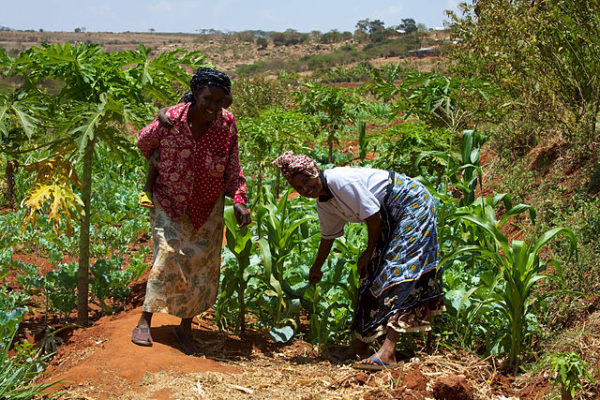By Amélie Desjardins, Principal, Intellecap Advisory Services
In a nation where land is not only a precious resource but also a cultural heritage, sustainable land management and conservation are pivotal for preserving Kenya’s natural wealth for generations to come. At the forefront of these efforts are the women of Kenya, whose contributions and leadership are instrumental in safeguarding the country’s ecosystems and ensuring a sustainable future.
Discussing with Teresa Muthoni, a Project Manager at One Tree Planted, there is an enhanced recognition within the country for the critical role women play in conservation and land restoration. Historically, women in Kenyan communities have been the stewards of the land, drawing upon indigenous knowledge and sustainable practices to maintain the delicate balance between human needs and environmental preservation. As the custodians of their households, women ensure food security for their families.
However, women face significant challenges in accessing resources and land ownership. Muthoni pointed out that land is mostly owned by men, limiting women’s access to financial resources and decision-making power. Despite these hurdles, women across Kenya are rising to the challenge and leading grassroots conservation initiatives that are making a tangible difference in their communities. Terrafund for AFR 100 is one example that promotes gender-transformative initiatives, such as involving women in land-use planning and enhancing their participation in decision-making processes.
Another example is Intellecap’s accelerator programme ‘’Business acceleration through gender mainstreaming’’, which aims to support climate-smart agricultural enterprises in Kenya, Rwanda, Tanzania, and Uganda to scale up and simultaneously mainstream gender in their operations. One such enterprise supported by the programme was Griincom, a woman-led company in Kenya that manufactures and distributes affordable organic inputs to smallholder farmers in Nakuru County. By leveraging the technical assistance and investment readiness support received, Griincom is actively integrating gender into its value chain by ensuring that women have access to their products, and by empowering women to improve their yields sustainably while promoting waste sorting and management in their kitchens.
Women are at the core of helping their communities to mitigate the impacts of climate change and ensure food security in the face of changing weather patterns and environmental challenges. In order to fully harness the potential of women’s leadership in sustainable land management, it is essential to create an enabling environment through gender-responsive policies. These policies should ensure women’s equal rights to own, inherit, and control land, as well as facilitate their access to financial resources for sustainable land management projects. It is particularly critical that policies facilitate women’s access to credit, loans, and grants for sustainable land management projects. Policies targeting funding for women-led initiatives and organizations in that sphere would be game-changing. Moreover, policies should mandate women’s equal representation in decision-making bodies, such as land management committees and conservation boards, to ensure their perspectives and priorities are considered. By implementing these gender-responsive policies, governments and organizations can unlock the potential of women in driving positive change for both communities and ecosystems.
Muthoni affirmed the importance of gender-responsive policies and the role of government in supporting social inclusion in land management. She noted that there is an increasing number of women leaders at the county level championing for change. She called upon these champions to actively support women’s land rights, participation in decision-making processes, and access to training and resources. By investing in women’s leadership and empowerment, Kenya can leverage the untapped potential of women in driving positive change for both people and the environment.
As we look to the future, women’s leadership in sustainable land management and conservation is not only necessary but also transformative. By recognizing, supporting, and investing in the contributions of women, Kenya can build a more equitable and sustainable future, where the land and its resources are preserved for generations to come. It is time to celebrate and elevate the women who are leading the way in this crucial endeavor, and to ensure that their voices are heard, and their leadership is valued at all levels of society.








